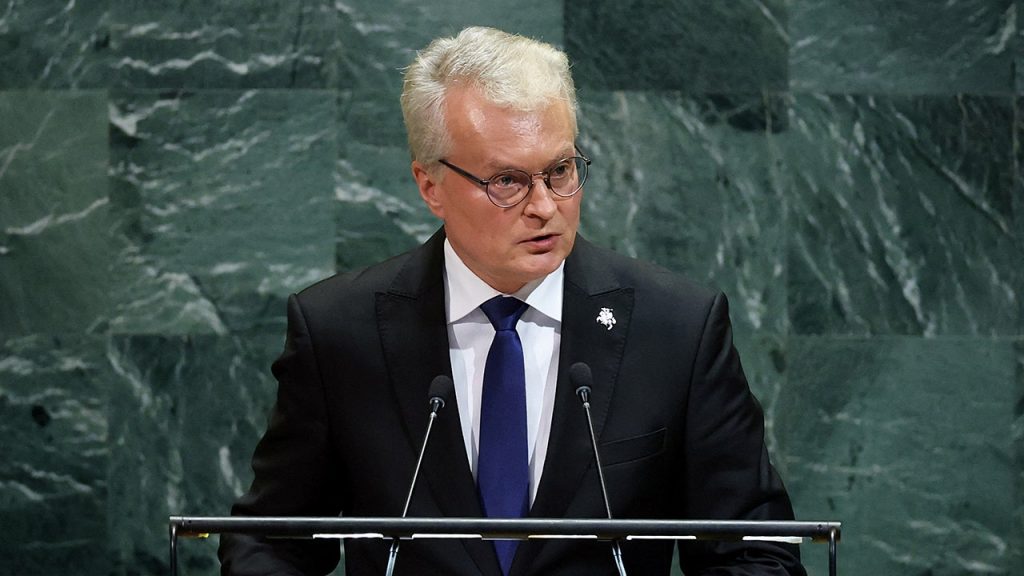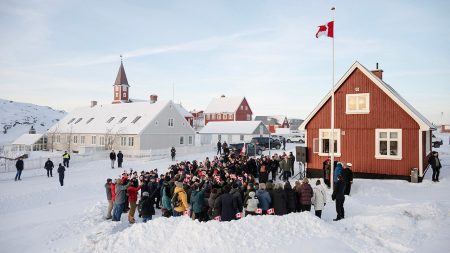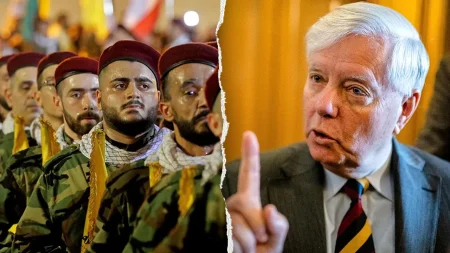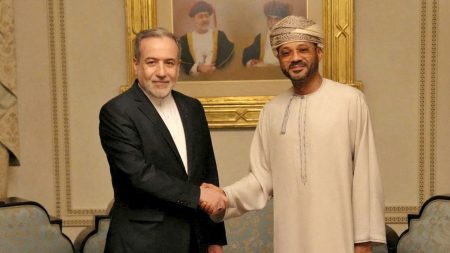President of Lithuania Praises Trump’s UN Address, Emphasizes Border Security and Russia Policy
In an exclusive interview with Fox News following President Donald Trump’s address to the United Nations, Lithuanian President Gitanas Nausėda offered strong support for Trump’s remarks, particularly regarding border protection and Russia policy. Speaking outside the UN shortly after both leaders addressed the General Assembly, Nausėda provided insights into Lithuania’s perspective on global security challenges and its relationship with the United States.
“It was a strong speech. It was a speech which covered very important topics,” Nausėda said of Trump’s UN address. The Lithuanian leader particularly agreed with Trump’s emphasis on border security, stating plainly: “The independent state has to control the border.” This resonates deeply with Lithuania’s own security concerns, as the Baltic nation shares a 422-mile border with Belarus and a 161-mile border with Russia’s Kaliningrad enclave. Nausėda highlighted his country’s practical approach to border security, noting, “We built the fence, a physical barrier, and provided the tools necessary for a modern surveillance system. Now the country’s safe.” This achievement reflects Lithuania’s commitment to maintaining sovereignty in a region where tensions with Russia and Belarus remain high, with Nausėda adding, “We pushed back on those migrants who are coming into our country.”
President Nausėda expressed particular approval of the Trump administration’s tougher stance toward Russia, suggesting that American strength is essential for meaningful negotiations with Vladimir Putin. “Having the leverage that President Donald Trump has — he will be able to press Vladimir Putin to come to the negotiation table because we can do it only by proving our strength,” the Lithuanian president remarked. This perspective comes from Lithuania’s historical experience with Russian domination. The Baltic nation of 2.85 million people was occupied by the Soviet Union from 1940-1941 and again from 1944-1990, before becoming the first Soviet republic to declare independence on March 11, 1990. Since joining NATO and the European Union in 2004, Lithuania has been a vocal advocate for strong deterrence against Russian aggression. Nausėda dismissed appeasement strategies toward Putin, recalling, “I remember many leaders in Western Europe wanted to talk with Vladimir Putin, trying to appease him and to prevent him from aggression towards Ukraine. It didn’t help, and it probably led to the conclusion that there’s only one way to speak with Vladimir Putin — to speak through strength.”
On the ongoing war in Ukraine, Nausėda offered a stark assessment of Putin’s motivations, attributing Russia’s continued aggression to “old imperialist ambitions.” This view aligns with Trump’s recent Truth Social post stating Ukraine can win the war and recover all its territory “in its original form,” with Trump characterizing Russia as a “paper tiger.” The Lithuanian president had harsh words for European Union members that continue economic relationships with Russia despite the invasion of Ukraine. “There shouldn’t be a tradeoff between economic benefits and geopolitical goals because we are talking about our security. If we pay for Russian gas or oil today, tomorrow we might be attacked because this money fuels Russia’s war machine,” Nausėda warned. Lithuania took decisive action on this front, ending all imports of Russian oil and gas just two months after Russia’s full-scale invasion of Ukraine began in 2022.
Lithuania’s commitment to defense and security extends beyond rhetoric to substantial financial investment. Addressing Trump’s calls for NATO members to increase defense spending, Nausėda stated enthusiastically, “We are ready to spend 5% and more. 2035 is not okay for us. We want to spend between 5 and 6% starting in 2026.” This ambitious target far exceeds NATO’s current guideline of 2% of GDP. Already, one-fifth of Lithuania’s military procurement budget goes toward American weapons, reflecting the strong security partnership between the nations. When asked about potential Russian aggression against NATO countries, Nausėda emphasized preparedness: “We should be prepared. We should do anything in our hands to deter them. I believe in deterrence, but we have to build a credible wall of deterrence.” This stance mirrors comments from Lithuania’s defense minister, who earlier told Fox News that the only way to negotiate with Putin is with a “gun on the table.” The Lithuanian president expressed confidence in his country’s military capabilities, particularly after recent Russian violations of NATO airspace over neighboring Estonia.
Looking toward the future of US-Lithuanian relations, Nausėda appeared optimistic despite reports that the Pentagon might reduce some security funding for the Baltic States, saying, “It’s not a final decision.” He expressed hope that the 1,200 American soldiers currently deployed to Lithuania would remain, noting that four US soldiers who died in a training accident in March were given full military honors in the capital. Lithuania, along with other Baltic States, recently announced plans to leave the Ottawa Convention, which would allow them to deploy anti-personnel landmines as part of enhanced border security measures against Russia and Belarus. Despite these serious security concerns, Nausėda concluded his interview with a warm invitation, highlighting his nation’s attractions: “Vilnius is a great capital. We have very nice nature, and we have very friendly people.” This blend of strategic determination and national pride characterizes Lithuania’s approach as it navigates complex geopolitical challenges while maintaining strong ties with the United States and other Western allies.















